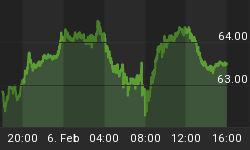We know Obamarama is going to tax the rich, but I bet many didn't think he would weasel in the carbon tax as quickly as he is going to now. A Romney win would have been bullish for coal producers in the US - but Romney lost, and now so has coal, at least in the near term. The biggest winner from Obamarama? Naturalgas.
Exxon Mobil Corp (XOM) is now supporting Obama in bringing a carbon tax to the US.
Why would Exxon - and other big energy companies - join forces to bring onthe carbon tax?
The answer is simple: profits.
Exxon has made significant purchases, buying unconventional North American gas companies. For example, it recent bought Canadian firm Celtic Exploration for over C$2.5 billion. Let's not forget that a couple of years back, Exxon bought out XTO Energy for over US$30 billion.
How much pull does Exxon have in Washington, DC? Exxon has one of the largest lobbying groups on Capitol Hill. And how ironic: Exxon is also one of the largest holdings for all of the US Congress members. Exxon has always had clout in Washington and always will. Exxon is one of the former Rockefeller oil companies... one that has now positioned itself as one of the dominant unconventional North American companies.
How does a carbon tax benefit Exxon? Natural gas and coal race neck-and-neck when it comes to electricity generation in the United States. By increasing the cost to produce coal, natural gas becomes more attractive for utilities.This means a better bottom line for Exxon. and a fatter paycheck for its executives.
But why unconventional natural gas in the United States?
First off, it's hard for a company as large as Exxon to find deposits that will move the needle on its production meter. Unfortunately for Exxon, most of the world-class deposits that it is looking for are in regions where US companies like it have lost their advantage. For example, in Russia and former USSR states, Exxon has to now play by Putin's rules, which could change at any minute.
South America has also proven to be very dangerous for American companies. Chevron has just had US$18 billion worth of assets seized in Argentina. Before that, Chavez in Venezuela taught Shell and Exxon about doing business in Venezuela. Nationalization drives also followed in Bolivia and Ecuador. All this means is that there are fewer places companies like Exxon can go to make a consistentreturn on an investment without insane political risk.
Obama isn't dumb; he knows that just taxing the rich won't be enough to fill the deficit gap in the United States. A carbon tax would help both financially as well as politically: Obama would look like a hero standing up to the "dirty polluters," as well as bring in another US$100 billion in revenues.
Coal, both metallurgical as well as thermal, is already suffering: metallurgical coal prices are down because of lower demand in Europe and Asia, while thermal coal is down because of pricing pressure from natural gas and the success of shale gas. A carbon tax would be a knockout blow to the thermal-coal industry in the United States.
With the backing of Exxon, expect Obama to not only bring in a carbon tax, but to do it a lot quicker than anyone has expected - and he will be viewedas a hero by many for doing it.
Is your portfolio positioned to benefit from this coming change? It had better be. If not, you can learn how to get it in shape - and also get in on the energy super-bull that's forming.















